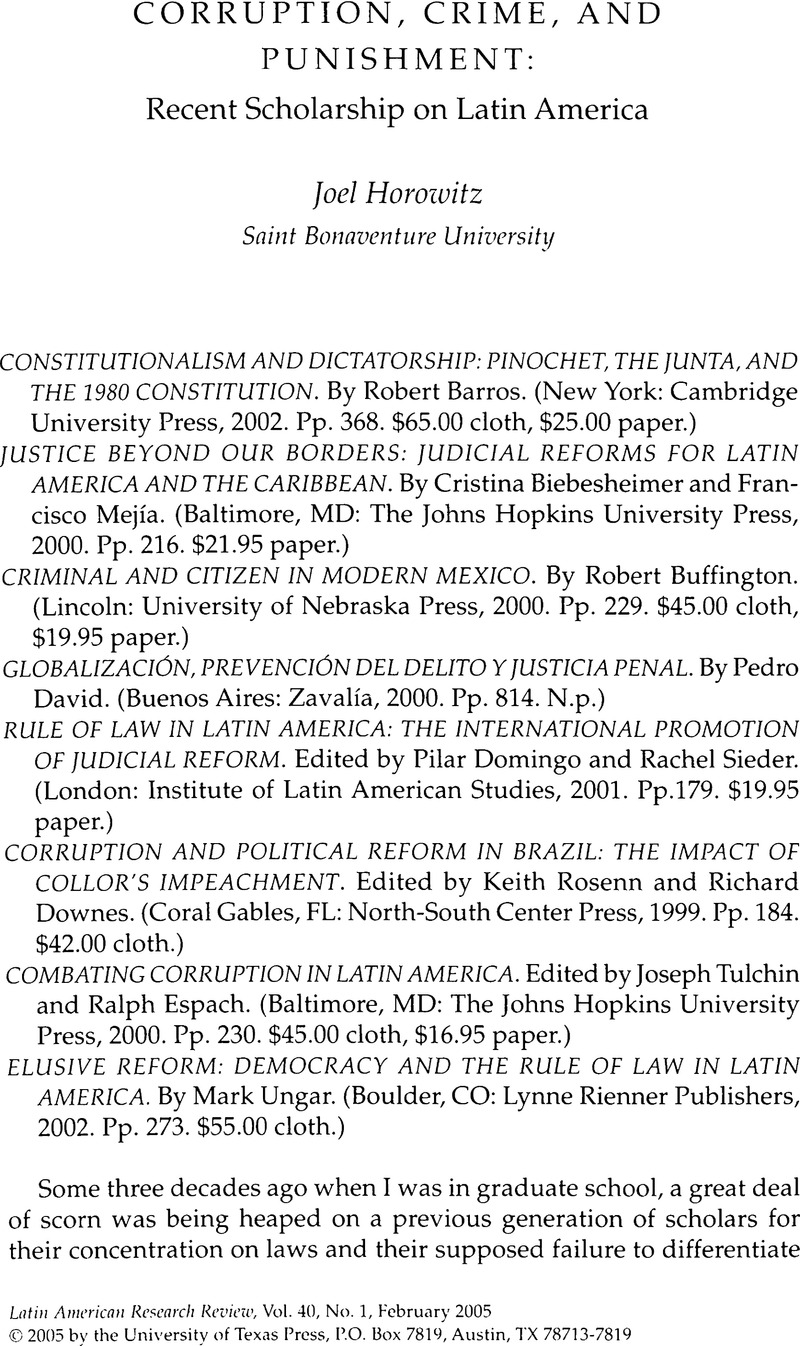Article contents
Corruption, Crime, and Punishment: Recent Scholarship on Latin America
Review products
Published online by Cambridge University Press: 05 October 2022
Abstract

- Type
- Review Essays
- Information
- Copyright
- Copyright © 2005 by the University of Texas Press
References
1. See for example, Tina Rosenberg, “The Taint of the Greased Palm,” The New York Times Magazine, 10 August 2003, sec. 6, p. 28–33.
2. See for example the fairly recent summary article by Ricardo Salvatore, “Criminal Justice History in Latin America: Promising Notes,” Crime, History and Societies 2 (2): 5–14 (1998).
3. See for example the innovative recent Ph.D. dissertation of Line Schjolden, “Suing for Justice: Labor and the Courts in Argentina, 1900–1943,” (Ph.D. diss., University of California, Berkeley), which examines how the legal system helped deal with the “social question” because other parts of the society were unable or unwilling to address the problem.
4. Thomas E. Skidmore, Politics in Brazil, 1930–1964: An Experiment in Democracy (New York: Oxford University Press, 1967), 68.
5. La Nación Online, 11 August 2003. Accessed at http://www.lanacion.com.ar/03/08/11/dx_510921.asp [no longer available].
6. The interest in corruption and the problems that it creates has also begun to enter the historical literature. See for example, Alfonso W. Quiroz, “Implicit Costs of Empire: Bureaucratic Corruption in Nineteenth-Century Cuba,” Journal of Latin American Studies 35 (3):473–511 (August 2003).
7. For example, in the working class suburbs of Buenos Aires where crime rates are very high, there are several politicians who are quite successful, despite a history that ties them to repression during the military regime of the 1970s, because they seem to offer a strict stand against criminal elements.
- 3
- Cited by




